Quick Answer: Best Essential Oils for Relieving Anxiety
1. Lavender Oil
2. Marjoram Oil
3. Geranium Oil
4. Chamomile Oil
5. Bergamot Oil
6. Frankincense Oil
7. Neroli Oil
8. Ylang Ylang Oil
9. Lemon Grass Oil
10. Valerian Oil
Anxiety is the body’s natural response and it is ok to feel fearful or nervous when anticipating something such as an examination or a job interview. [2]
According to the American Psychiatric Association women are more likely to be diagnosed with anxiety than men. [3]
31.1% of American adults are estimated to be having anxiety disorders.[4]
Some of the common symptoms of anxiety are increased heart rate, feeling of restlessness, sweating, trembling, feeling tired, unable to control worrying and the urge to avoid triggers/situations that cause the anxiety attacks. [5]
However, if these feelings begin affecting your life as well as causing you distress, then the issue of anxiety needs to be addressed.
Anxiety disorders often go undiagnosed or are left untreated. Treatment often includes a combination of psychological therapy along with pharmacotherapy and cognitive behavioral therapy. [6]
Drowsiness, dizziness, insomnia, and headaches are some of the common side effects of current anxiety medications.[7]
Essential oils and aromatherapy have been used for years by aromatherapy practitioners for treating conditions like anxiety and relieving stress. [8]
What are Essential Oils?
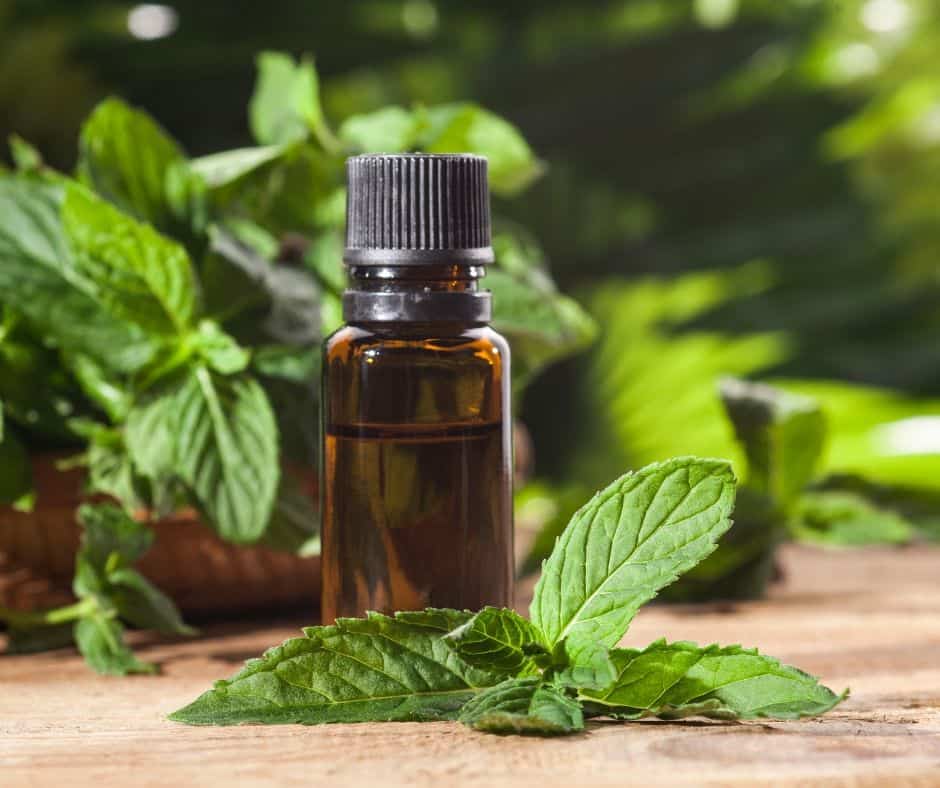
Essential oils are made from different parts of a plant such as leaves, bark, rind, etc.
The oils extracted can be added to creams, carrier oils (vegetable oils) or bath and shower gels. [9]
Essential oil therapy can include using the oils by inhalation (aromatherapy), or applied to the skin or added to bath water.
The oils may also be ingested in some cases, depending on the ailment.
Some examples of essential oils are chamomile oil, lavender oil, citronella oil etc. Since essential oils are concentrated they need to be diluted in suitable fixed oils/vegetable oils before being used. [10]
The carrier oils in which the essential oils are diluted include sweet almond oil, jojoba oil, etc.
Can Essential Oils Help in Anxiety?
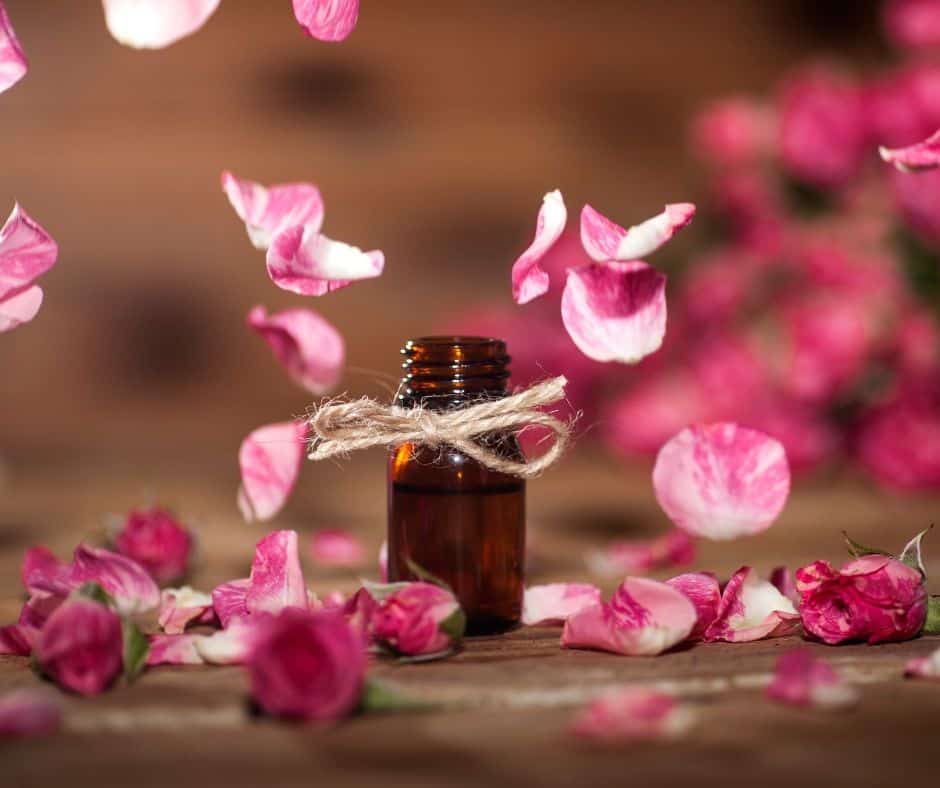
Yes, essential oils and aromatherapy are widely considered as an option for treating anxiety. They are effective against various types of anxiety by a similar mechanism of action.
The essential oils have their major effect on the brain chemicals and energy systems of the body thus calming and relieving anxiety. [11]
The mechanism by which essential oils help relieve anxiety is complex and not completely understood. However, it is well accepted that the effect lies mainly on the central nervous system.
Inhalation of essential oils signals to receptors in the nose and can stimulate brain chemicals such as serotonin and dopamine, which are responsible for maintaining a calm and happy mood. [12]
Studies on the anti-anxiety effects of essential oils have shown that they are important natural products to be considered as potential drug candidates. [13]
The essential oil having the best profile is lavender oil the results of which have been positive in clinical trials. [14]
On the other hand, Citrus aurantium oil has been used via different routes of administration and shown prominent effects in animal models. [15]
Examinations can produce stress and anxiety in students.
An interesting study was carried out to determine the effects of rosemary and lavender essential oils on test-taking anxiety among nursing students and found that these essential oils can reduce stress and anxiety as evident from the lower pulse rates, anxiety measuring test scores and personal statements of the students. [16]
When the effect of Bergamot oil on anxiety-like behavior in rat models was observed, they concluded that the essential oil's amazing neurobiological effects could produce anxiolytic and relaxant effect in the animal models. [17]
Not just examination anxiety, but essential oils have proven to be beneficial in preoperative anxiety as well.
Women who were undergoing breast surgery were given aromatherapy with lavender fleur oil and the results showed that these women experienced a significant increase in positive feelings compared to the group of women who received unscented oil. [18]
In addition to surgeries and treatment procedures, the news of the diagnosis itself can bring about feelings of worry and anxiety.
Older patients who were diagnosed with acute coronary syndrome and experiencing anxiety were given an aromatherapy massage and significant reduction in the levels of anxiety as well as systolic and diastolic blood pressure and heart rate was observed among patients who received the aromatherapy massage compared to those that did not. [19]
When patients are sick or hospitalized often their family members have to care for them, and they may feel anxious, depressed and helpless at times.
A study analyzed the effect of family members providing a hand massage with pleasant-smelling essential oils to their loved ones who were sick, it was found to have a positive impact on the family members. [20]
Brief exposure to lemongrass oil has shown to have an anxiolytic effect on humans subjected to experimental anxiety.[21]
Thus the role of essential oils in relieving stress and anxiety is multifaceted and can be beneficial in anxiety cause by a variety of triggers.
Which Essential Oils can be used for Anxiety in Dogs?
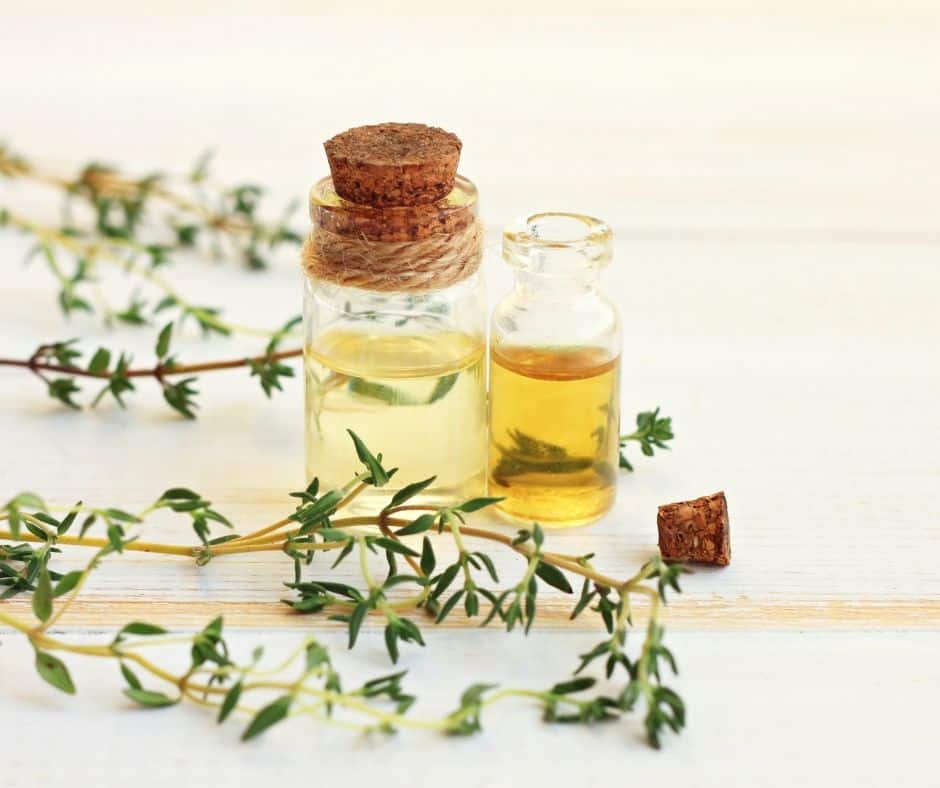
Yes, essential oils can be used to relieve anxiety in dogs by relieving their stress, bringing a sense of calm and quietening the mind.
There are several essential oils that are wonderful aids for anxiety and stress in dogs.
Some of the recommended essential oils are lavender, Cedarwood, chamomile, lemon, and bergamot. [22]
Pets like dogs require extensive care and trip to the vet, grooming, multiple visitors, fireworks and noise as well as being left alone at home can cause stress in these animals which we refer to as anxiety.
Essential oils are a great way to relieve stress in these animals.
Cedarwood oil has a relaxing effect on dogs and can improve their skin and should be used in a water diffuser. [23]
Lavender oil is recommended for stressful situations like trips to the vet and training of dogs. [24]
Frankincense is the safer and less potent oil for use in dogs and helps to quieten the mind, improve the behavior and also has antibacterial properties. [25]
The oils can be used by diffusing them in a room or by rubbing a few drops of oil in your hand and massaging it on your dog. [26]
A spray can also be prepared by adding a few drops of the oil to 100ml of water in a spray flask and then spray it onto your dog’s nose or on the back of the collar. [27]
The oil can be applied or diffused every time your dog feels anxiety and is an easy and safe way to make your pet feel calm and relaxed. [28]
Which Essential Oils can be used for Anxiety during Pregnancy?
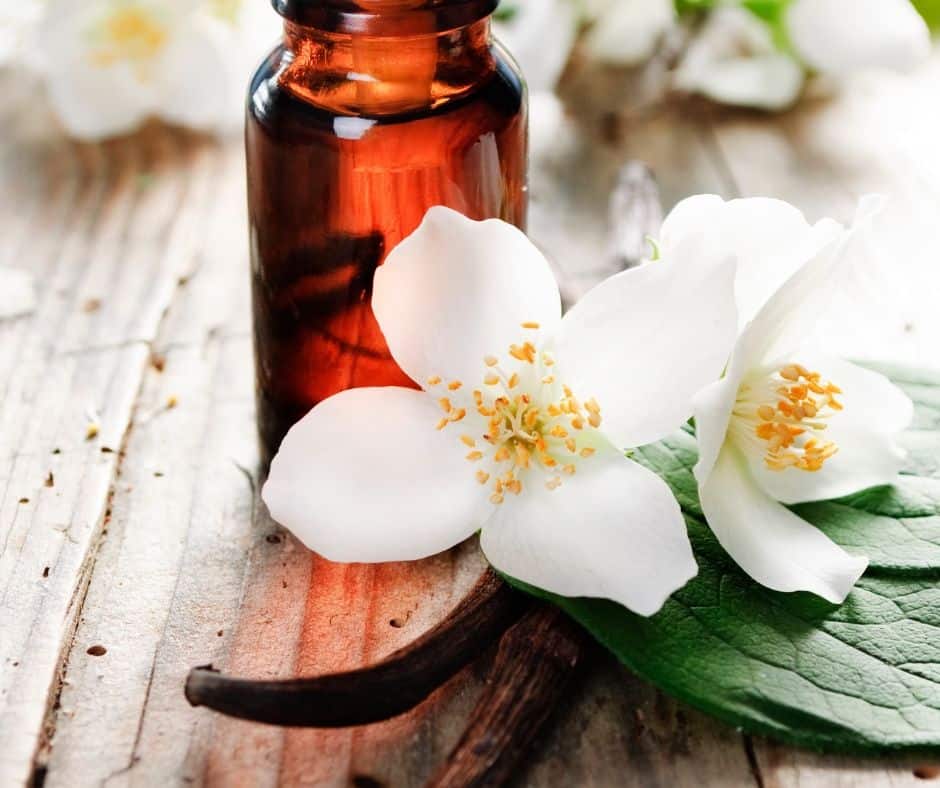
Yes, pregnancy-related anxiety can be reduced with the use of several essential oils and aromatherapy. Lavender, Chamomile, Neroli, and Ylang Ylang to name a few are some of the safest and most effective essential oils for pregnancy-related anxiety. [29]
Pregnancy is accompanied by a large number of physical as well as psychological changes. As the body prepares to support new life there is a fluctuation in hormonal levels, which can also cause emotional changes. [30]
While essential oil use is a great way for pregnant women to relax the selection of the essential oils used is important to ensure they are safe for both mother and baby. [31]
It is safe to hold off aromatherapy for the first three months of pregnancy when the baby is developing and is most vulnerable. [32]
Peppermint, rosemary, basil and thyme oils should be avoided during pregnancy as they can trigger uterine contractions which may cause premature labor. [33]
Lavender and Neroli are some of the best essential oils to help balance emotions during pregnancy. [34] While Marjoram oil is capable of reducing the aches and pains associated with pregnancy.[35]
Chose the essential oils carefully and never put the essential oils directly on the skin always use a suitable carrier oil.
Do not use a single essential oil continuously over a long period, for example the same oil every day for several weeks. [36] Try switching it up.
If the essential oil is used with a vaporizer do not use it for longer than 15 minutes every hour and make sure that the room is well ventilated else the scent may become overpowering and lead to nausea. [37]
What are the Best Essentials Oils for Anxiety?
There are several essential oils that are great for anxiety that can eliminate feelings of worry and stress and comfort the mind.
Some of the best essential oils for anxiety as lavender, lemongrass, bergamot, marjoram oil, etc. to name a few.
Let’s take a look at some of the best essential oils for stress relief.

1. Lavender Oil
Lavender oil has shown the best profile for calming anxiety and has had positive results in clinical trials as well. A study has shown that lavender oil can reduce anxiety in high risk postpartum women. [38]
Aromatherapy with lavender oil is believed to transmit signals to the limbic system which is the part of the brain responsible for emotional responses. [39]
2. Marjoram Oil
Marjoram oil can be used to relieve anxious feelings and emotional stress that accompanies social interactions and communicating with people by providing a sense of calm and comfort. [40]
It also helps in making decisions and should be used by massaging the oils as this can help relieve physical (muscular) as well as emotional tension. [41]
3. Geranium Oil
Geranium oil has the ability to uplift the mood and can reduce anxiety experienced by pregnant women during labor.[42]
It is a non-invasive anti-anxiety aid during childbirth and women who received geranium aromatherapy experienced a reduced diastolic blood pressure. [43]
4. Chamomile Oil
The sedative and relaxant properties of this oil is well known and is useful for mild to moderate general anxiety disorder (GAD). [44] It can elevate the mood and reduce restlessness as it calms both the body and mind. [45]
5. Bergamot Oil
One of the well-known essential oils when it comes to managing anxiety. Bergamot oil is known to produce anxiolytic effects and reduce cortisone, which is responsible for stress in animal models. [46]
It can also be used to help with agitation and induce relaxation. [47]
6. Frankincense Oil
This oil increases oxygen flow to the brain and lifts the mood, it also relaxes the blood vessels and the center of the brain responsible for emotional responses is positively stimulated. [48]
Frankincense will reduce thoughts and feelings related to anxiety. [49]
A mixture of lavender, frankincense, and bergamot was used as a hand massage and relieving anxiety in terminal cancer patients. [50]
7. Neroli Oil
The most common use of Neroli oil is in managing anxiety. [51]
Neroli oil has been found to reduce sleep problems and alleviate anxiety in coronary angioplasty patients in an intensive care unit. [52]
8. Ylang Ylang Oil
Ylang Ylang oil is known to bring the mind, peace, and calm. [53]
The oil helps bring about cheerfulness and optimism and helps reduce fear. [54]
A study conducted involved inhalation of lavender, bergamot and ylang-ylang oil once daily for 4 weeks’ psychological stress, cortisol levels, and blood pressure was reduced. [55]
9. Lemon Grass Oil
The calming aroma of lemongrass helps to alleviate stress and anxiety. [56] Often used in spas as it encourages relaxation and a sense of well-being. [57]
A study has shown that lemongrass has been useful in experimental anxiety cause in humans. [58]
10. Valerian Oil
Valerian roots contain valerenic acid and valerenol which are anti-anxiety agents. [59] Valerian’s actions are mainly on the Gama Aminobutyric Acid (GABA) which has sedative and anti-anxiety effects. [60]
For many patients with anxiety, bipolar disorder valerian shows promise as a safer alternative with minimal side effects compared to benzodiazepines. [61]
How to use Essential Oils for Anxiety?
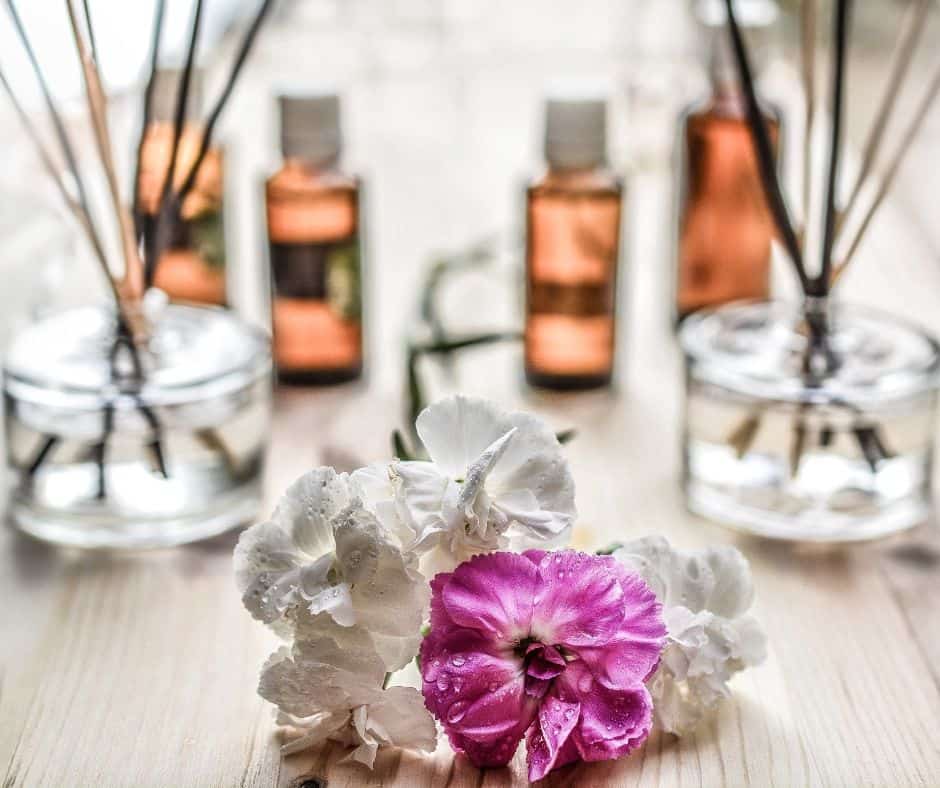
There are four main ways that essential oils can be used for anxiety, they are diffusion, inhalation (aromatherapy), massage and addition of the oil to bath water.
Using one of these ways can provide the best results and ensure a relaxed feeling.
Listed below are the different ways that essential oils can be used for anxiety:
Diffusion
Adding a few drops of the essential oil of your choice to your diffuser. [62] The effects will last throughout the day and the room will smell fresh as well.
If in public place use of diffuser jewelry is the best option as the smell will be confined to yourself. [63]
Inhalation
Put a few drops of the oil, which is dissolved in the carrier oil on your skin, such as the wrist of your hand and then rub it into the skin to release the place of the oil near your nose and take deep breaths to quieten feelings of anxiety. [64]
Those who have skin sensitivity can place one to two drops on a handkerchief or cotton pad or use an inhaler for inhalation. [65]
Massage
Add 10-15 drops of the essential oil to 50 ml of carrier oil such as sweet almond or jojoba oil and massage over the body or on the wrists and hands. [66]
It can also be rubbed behind the ears, neck and on the soles of the feet to feel calm.
Bath
Addition of essential oils to bath water is one of the great ways to attain a relaxed feeling. 5-10 drops of the essential oil diluted in 1 tablespoon of the carrier oil of your choice should be added to bath water. [67]
This allows the skin to be moisturized as well as protected. Adding essential oils to running water will cause them to evaporate and should be avoided. [68]
Precautions using Essential Oils for Anxiety?
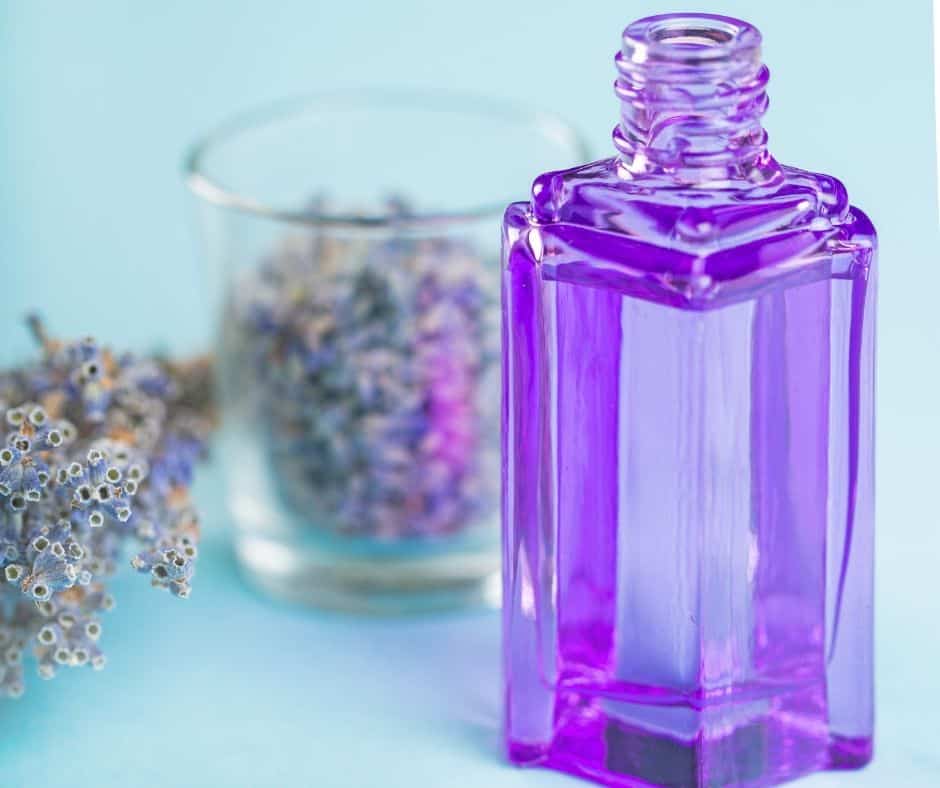
The precautions necessary when using essential oils for anxiety are to always dilute the essential oil in a suitable carrier oil and not use the undiluted oil directly on the skin for sensitivity testing.
Use of therapeutic grade oils is of importance and the essential oils should be used with care during pregnancy and use should be avoided during the 1st trimester.
Many essential oils can be irritants, therefore, they should always be tested on a small patch of the skin. [69]
Essential oils should always be used with a carrier oil, as they are concentrated if used directly can damage the skin.
Also, it provides the added benefit of moisturizing the skin.
Essential oils should never be diluted with water and used, as oil and water are immiscible. [71]
Choice of essential oil used in pregnancy should be made with care and preferably avoid using during the 1st trimester. [72]
Use of essential oils in infants less than 6 months of age should be avoided and use with caution during pregnancy, asthma and epilepsy patients. [73]
Lavender oil boosts the effects of sleep medication and anti-depressants and therefore should be used carefully when taking these type of medications. [74]
When using essential oils with a diffuser during pregnancy ensure that the room is well ventilated to avoid an overpowering smell that may lead to nausea. [75].
Peppermint, rosemary, basil and thyme oils should be avoided during pregnancy as they can trigger uterine contractions which may cause premature labor. [76]
During pregnancy, the use of essential oils should be switched up and do not use the same essential oil continuously i.e. every day for several weeks. [77]
Always use therapeutic grade essential oils. [78]
Always consult your physician or a qualified aromatherapist before using any essential oils. [79]
Final Words
Essential oils provide a great alternative for managing conditions like anxiety without the side effects of anxiolytic medications and benzodiazepines.
They can calm the mind and provide relaxation to humans as well as pets such as dogs.
Among humans, they can provide relief for various causes of anxiety such as pre or postoperative anxiety, test-taking, diagnosis-related anxiety, pregnancy-related anxiety and anxiety experienced by family members who loved one is ill or hospitalized.
Essential oils are truly an indispensable tool for stress relief as long as the selection of the essential oil is done with care and its use is done in a well informed and knowledgeable manner.
